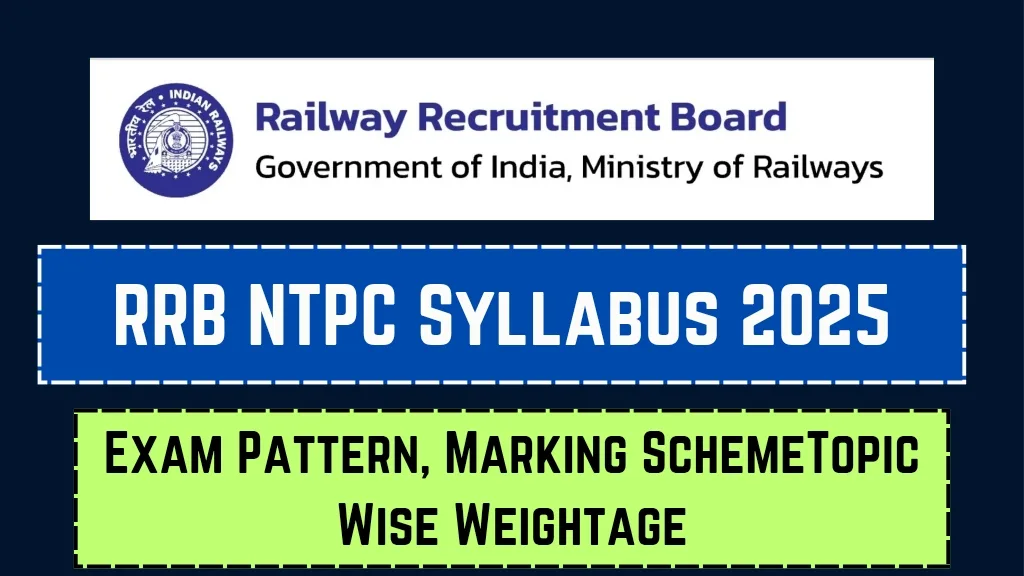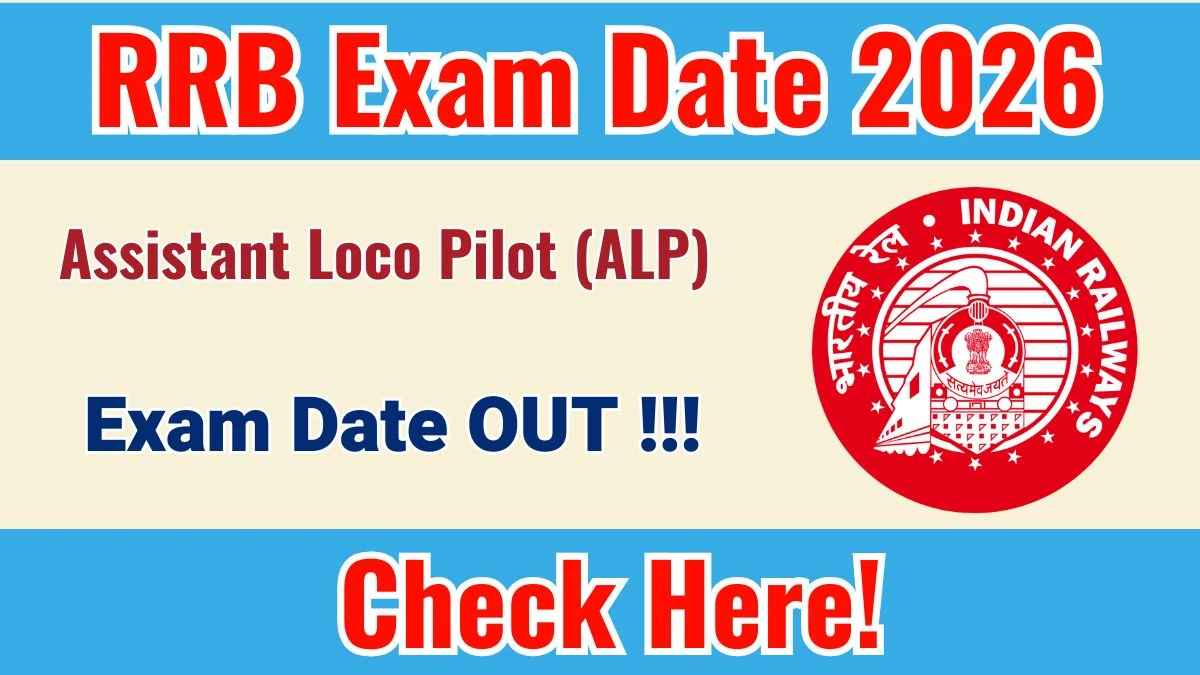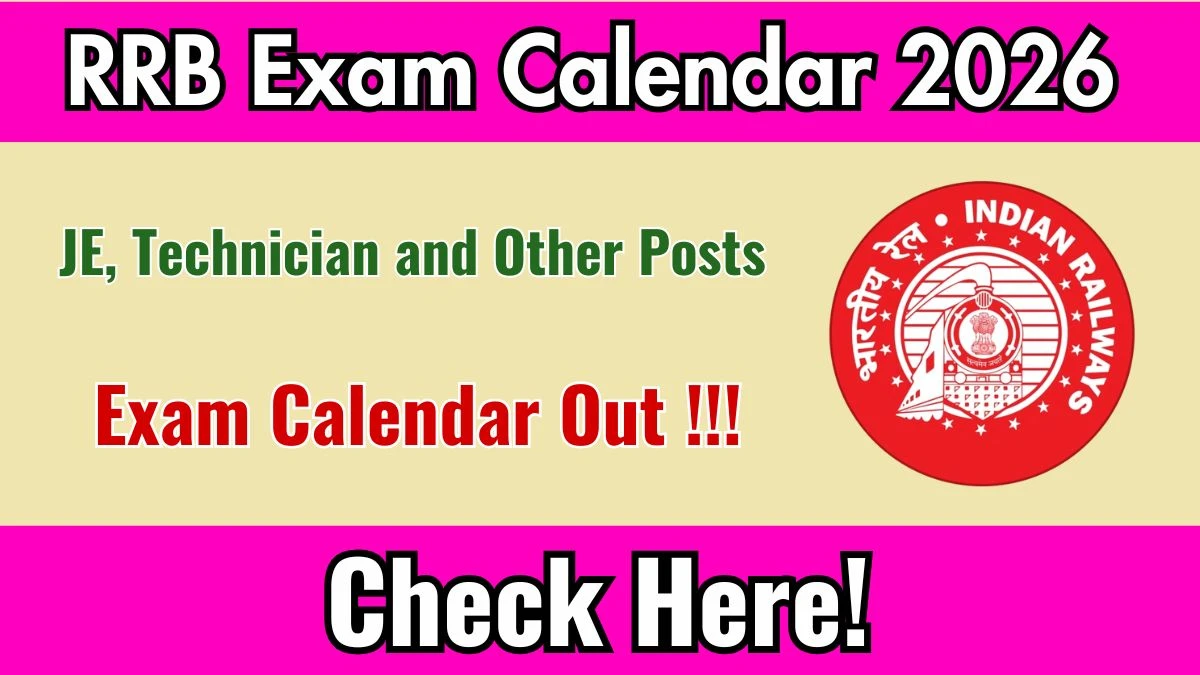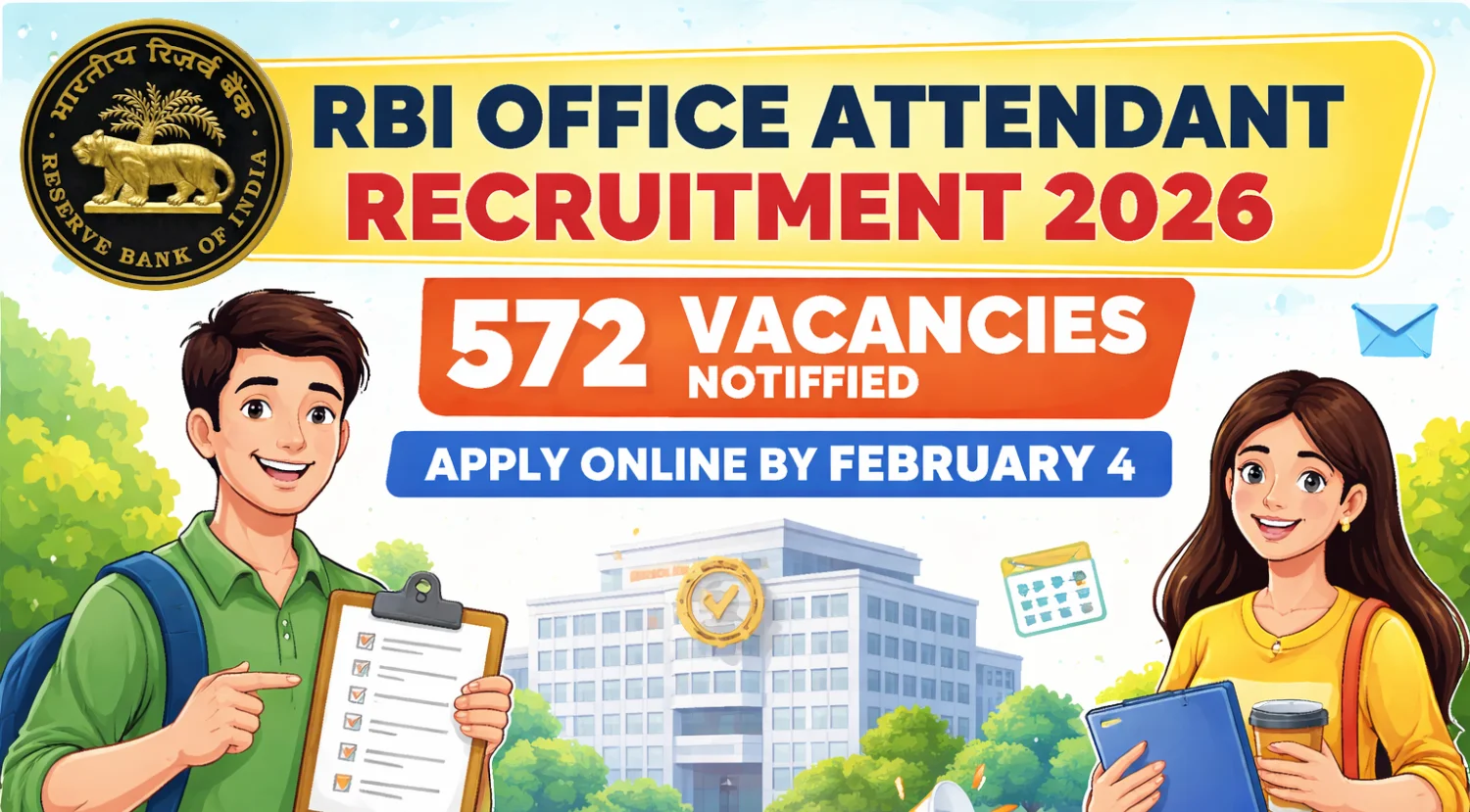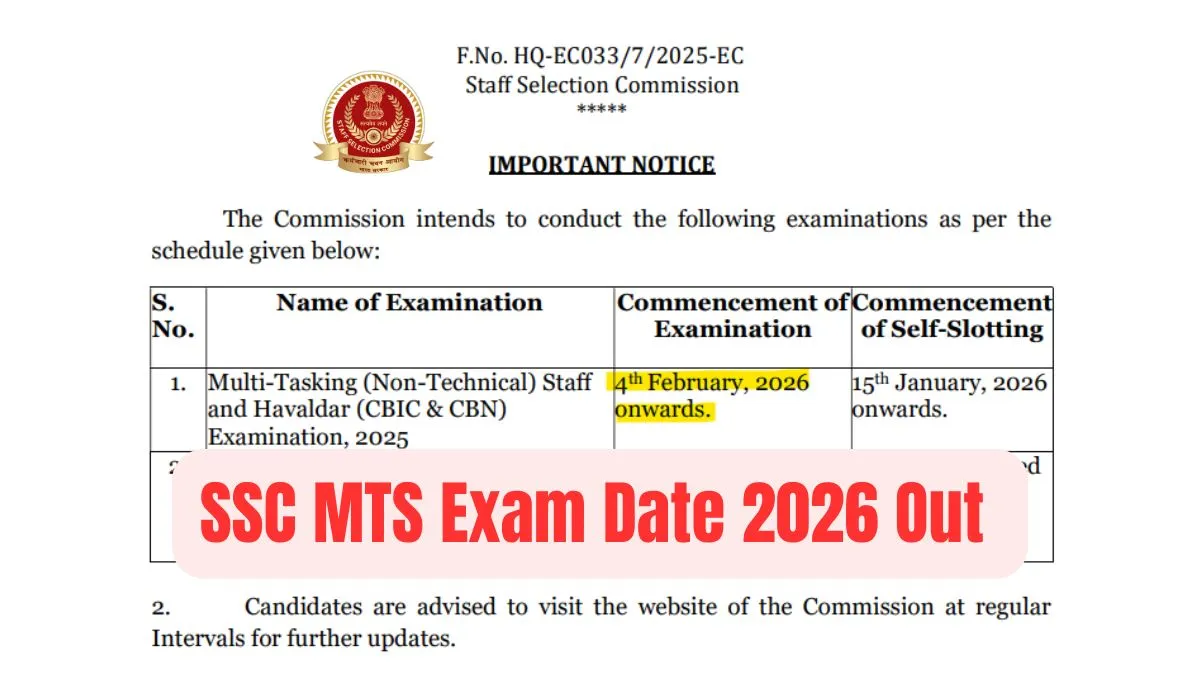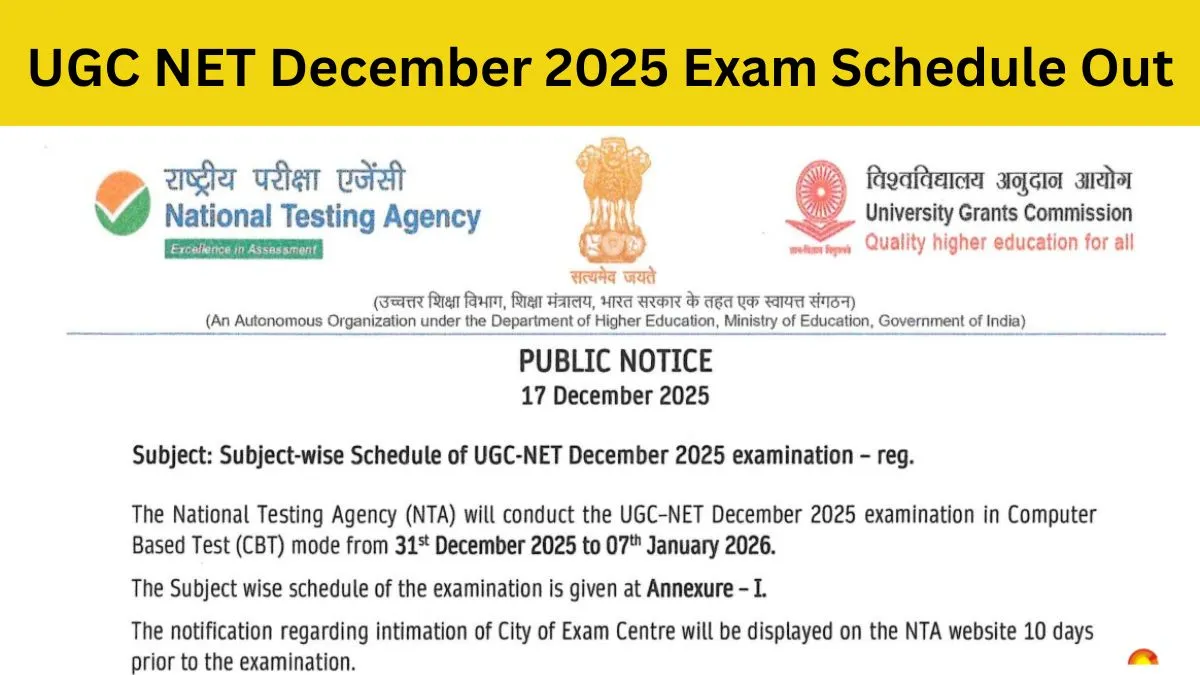The Railway Recruitment Board (RRB) Non-Technical Popular Categories (NTPC) exam is a highly sought-after opportunity for candidates aiming to secure various positions within the Indian Railways. A thorough understanding of the syllabus, exam pattern, and marking scheme is crucial for effective preparation. This article provides a comprehensive overview of the RRB NTPC Syllabus 2025, detailing the exam structure, subject-wise topics, and key highlights to guide aspirants towards success.
Key Highlights
- Exam Structure: The RRB NTPC exam comprises two stages: Computer-Based Test 1 (CBT 1) and Computer-Based Test 2 (CBT 2).
- Subjects Covered: Both CBT 1 and CBT 2 assess candidates in three areas: Mathematics, General Intelligence and Reasoning, and General Awareness.
- Question Distribution: CBT 1 consists of 100 questions, while CBT 2 comprises 120 questions.
- Marking Scheme: Each correct answer awards one mark, with a penalty of 0.33 marks for each incorrect response.
- Time Allocation: Candidates are given 90 minutes to complete each stage of the exam.
- Syllabus Consistency: The syllabus remains consistent across both CBT 1 and CBT 2, though the number of questions varies.
- Preparation Strategy: Focusing on high-weightage topics and practicing previous years’ papers can enhance performance.
Exam Pattern Overview
Understanding the exam pattern is essential for strategic preparation. Both CBT 1 and CBT 2 follow a similar structure but differ in the number of questions and marks distribution.
CBT 1 Exam Pattern
CBT 2 Exam Pattern
Note: There is a negative marking of 1/3rd mark for each incorrect answer in both CBT 1 and CBT 2.
Detailed Syllabus Breakdown
The RRB NTPC syllabus encompasses a range of topics across the three primary sections. A clear understanding of these topics will aid in focused preparation.
Mathematics
This section evaluates numerical ability and problem-solving skills. Key topics include:
- Number System: Understanding integers, fractions, and decimals.
- Decimals and Fractions: Operations involving decimals and fractions.
- LCM and HCF: Calculating the Least Common Multiple and Highest Common Factor.
- Ratio and Proportion: Solving problems related to the relative sizes of two quantities.
- Percentage: Calculating percentages and their applications.
- Mensuration: Measuring areas and volumes of various shapes.
- Time and Work: Problems on work efficiency and time management.
- Time and Distance: Calculations involving speed, distance, and time.
- Simple and Compound Interest: Interest calculations over time.
- Profit and Loss: Determining gains and losses in transactions.
- Elementary Algebra: Basic algebraic expressions and equations.
- Geometry and Trigonometry: Properties of shapes and basic trigonometric ratios.
- Elementary Statistics: Understanding data interpretation and statistical measures.
General Intelligence and Reasoning
This section assesses logical reasoning and analytical abilities. Key topics include:
- Analogies: Identifying relationships between pairs of words or figures.
- Completion of Number and Alphabetical Series: Predicting the next element in a sequence.
- Coding and Decoding: Deciphering coded language patterns.
- Mathematical Operations: Solving problems using basic arithmetic operations.
- Similarities and Differences: Recognizing commonalities and distinctions among items.
- Relationships: Understanding family relations and hierarchies.
- Analytical Reasoning: Evaluating arguments and drawing conclusions.
- Syllogism: Determining logical conclusions from given statements.
- Jumbling: Rearranging parts to form a coherent sequence.
- Venn Diagrams: Solving problems using set theory representations.
- Puzzle: Logical problem-solving involving various scenarios.
- Data Sufficiency: Assessing if provided data is adequate to answer questions.
- Statement-Conclusion: Deriving conclusions from given statements.
- Decision Making: Choosing the best option based on given information.
- Maps: Interpreting and analyzing map-related data.
- Interpretation of Graphs: Understanding and analyzing graphical data.
General Awareness
General Awareness
This section evaluates the candidate’s knowledge of current affairs, general science, history, polity, geography, and other important topics. Key topics include:
- Current Affairs: National and international events, awards, sports, and new government policies.
- Indian History: Ancient, medieval, and modern history of India, with a focus on major movements and personalities.
- Geography: Physical, economic, and social geography of India and the world.
- Indian Polity: Constitution, governance, important laws, and amendments.
- Economy: Basics of the Indian economy, budget, and major government schemes.
- General Science: Physics, Chemistry, and Biology (up to the 10th standard level).
- Environmental Issues: Climate change, pollution, and sustainable development.
- Static GK: Important national and international organizations, books and authors, and significant days.
Topic-Wise Weightage
Although the exact number of questions from each topic may vary, based on previous years’ exams, the approximate weightage for each section is:
Mathematics Weightage (CBT 2)
- Number System, Decimals & Fractions – 2-3 Questions
- LCM & HCF – 1-2 Questions
- Ratio & Proportion – 2-3 Questions
- Percentage – 2-3 Questions
- Mensuration – 2-4 Questions
- Time & Work – 2-3 Questions
- Time, Speed & Distance – 2-3 Questions
- Profit & Loss – 2-3 Questions
- Algebra – 2-3 Questions
- Geometry & Trigonometry – 2-3 Questions
- Statistics & Data Interpretation – 3-5 Questions
Reasoning Weightage (CBT 2)
- Analogies – 2-3 Questions
- Coding-Decoding – 2-3 Questions
- Mathematical Operations – 2-3 Questions
- Blood Relations – 2 Questions
- Syllogism – 2 Questions
- Puzzles & Seating Arrangement – 3-5 Questions
- Decision Making – 2-3 Questions
- Venn Diagram – 2-3 Questions
- Data Sufficiency – 2-3 Questions
General Awareness Weightage (CBT 2)
- Current Affairs – 8-10 Questions
- Indian History – 4-6 Questions
- Geography – 3-4 Questions
- Polity – 3-4 Questions
- Economy – 2-3 Questions
- Science – 4-6 Questions
- Static GK – 3-5 Questions
Marking Scheme & Negative Marking
- Each correct answer in both CBT 1 and CBT 2 carries 1 mark.
- Negative marking: 1/3rd mark is deducted for each wrong answer.
- Unattempted questions do not carry any penalty.
Preparation Tips for RRB NTPC 2025
1. Understand the Syllabus & Exam Pattern
Go through the syllabus thoroughly and understand which topics carry the most weight.
2. Make a Study Plan
Create a daily study schedule, covering all three sections. Allocate more time to difficult topics.
3. Practice Previous Years’ Papers
Solving past question papers will help understand the question trends and difficulty level.
4. Take Mock Tests Regularly
Mock tests will improve time management and accuracy. Analyze mistakes and improve weak areas.
5. Revise Regularly
Make short notes and revise key formulas, concepts, and important facts regularly.
6. Stay Updated with Current Affairs
Read newspapers, and monthly magazines, and follow government websites for the latest updates.
7. Manage Time Effectively
Practice solving questions quickly and efficiently to complete the exam within the given time.
Frequently Asked Questions (FAQs)
1. What is the selection process for RRB NTPC 2025?
The selection process includes:
- CBT 1 (Preliminary Exam)
- CBT 2 (Mains Exam)
- Typing Skill Test/Computer-Based Aptitude Test (as per the post)
- Document Verification
- Medical Examination
2. Is there a negative marking in RRB NTPC?
Yes, for each incorrect answer, 1/3rd mark is deducted as negative marking in both CBT 1 and CBT 2.
3. What are the best books for RRB NTPC preparation?
Some recommended books include:
- Mathematics: “Fast Track Objective Arithmetic” by Rajesh Verma
- Reasoning: “A Modern Approach to Verbal & Non-Verbal Reasoning” by R.S. Aggarwal
- General Awareness: Lucent’s General Knowledge
Conclusion
Preparing for the RRB NTPC 2025 exam requires a solid understanding of the syllabus, exam pattern, and topic-wise weightage. A well-structured study plan, regular practice, and staying updated with current affairs can significantly boost the chances of success. Follow a disciplined approach, take mock tests, and revise consistently to crack the exam with confidence.
